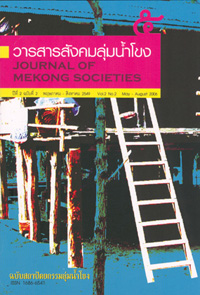Planning Patterns and Relationships with the Way of Life in Phu Tai Vernacular Gardens
Main Article Content
Abstract
The vernacular garden is an integral aspect of the physical and cultural ecology of the Phu Tai community and it influences the village way of life and social relationships. This research finds that the boundaries and areas of vernacular gardens are exceptionally fluid and flexible, which applies to areas ranging from the private garden to the community public space. Even though the physical aspect of the vernacular garden and its fundamental usage seem simple, several aspects of it deserve further study. The vernacular garden is important to the overall environmental balance of the village. It relates the sense of individuals and society through the relationship of the peoples’ way of life and the usage of the vernacular garden. Though these aspects may seem insubstantial, the implications are significant since it is part of what keeps a community together. Social and environmental changes and the shift in the locals’ way of life are the cause of the decline of the vernacular garden, which has become neglected and undervalued. These problems could be alleviated through sustainable community development and by restoring a sense of conscience and pride to the community. As for research and development, various aspects should be covered further through in-depth studies so that the role of the vernacular garden can be revived as part of community livelihood.


